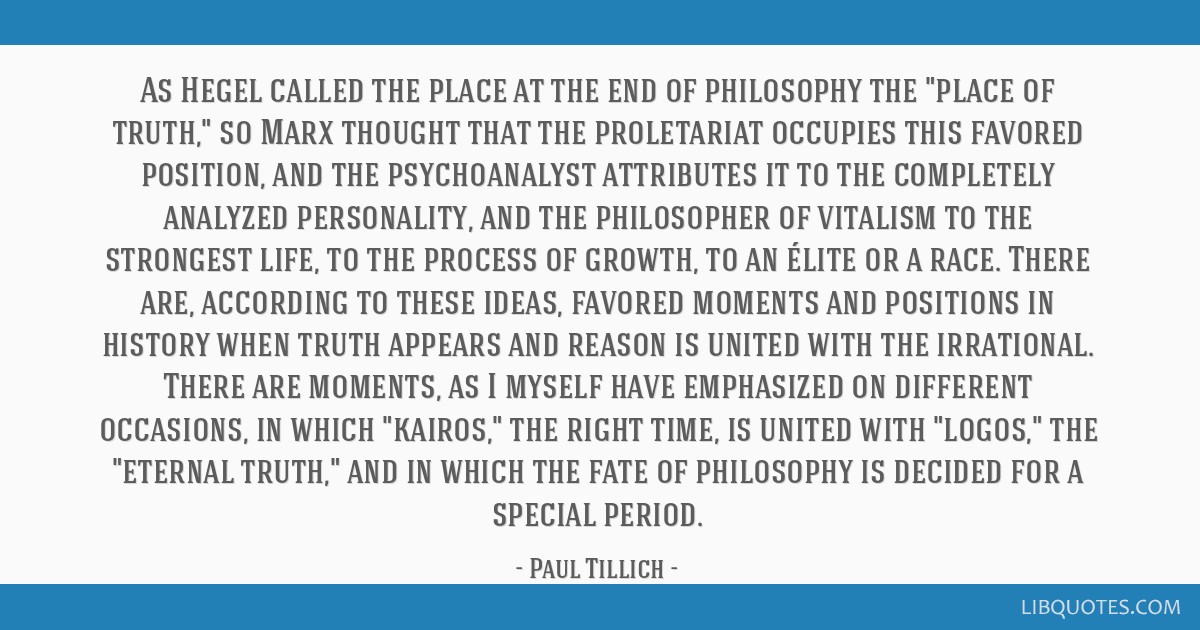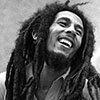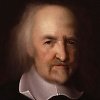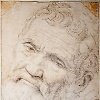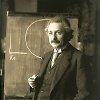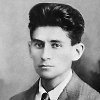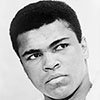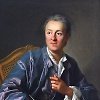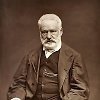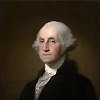As Hegel called the place at the end of philosophy the "place of truth," so Marx thought that the proletariat occupies this favored position, and the psychoanalyst attributes it to the completely analyzed personality, and the philosopher of vitalism to the strongest life, to the process of growth, to an élite or a race. There are, according to these ideas, favored moments and positions in history when truth appears and reason is united with the irrational. There are moments, as I myself have emphasized on different occasions, in which "kairos," the right time, is united with "logos," the "eternal truth," and in which the fate of philosophy is decided for a special period.
"Philosophy and Fate", a translation of his inaugural address as chair of Professor of Philosophy at the University of Frankfort on the Main (June 1929) - The Protestant Era (1948)
